#bank of naples
Explore tagged Tumblr posts
Photo

The redevelopment art project Urban Colors has chosen as the location for its latest intervention Trieste, a city historically a meeting place for cultures from all over the Mediterranean and the scene of important events in the history of Italy.
The space chosen by Urban Colors is precisely a building that tells a page in the history of the 20th century, particularly that of the fascist regime. Luca Mayr, curator and artistic director of Urban Colors, and Ron Miller, art director of the project, chose to involve 16 artists to give a new face to the former Bank of Naples, now converted into a gymnasium.
The artists who collaborated on the project are some of the most recognized names in national and international street art such as Peeta, Ravo, Joys, Ozmo, Rancy, Oger, Amina, Sorte, Stuer, Corvino, Fosk, Stefano and Mattia Bonora, Samuele Frosio, Ron Miller, and Andrea639.
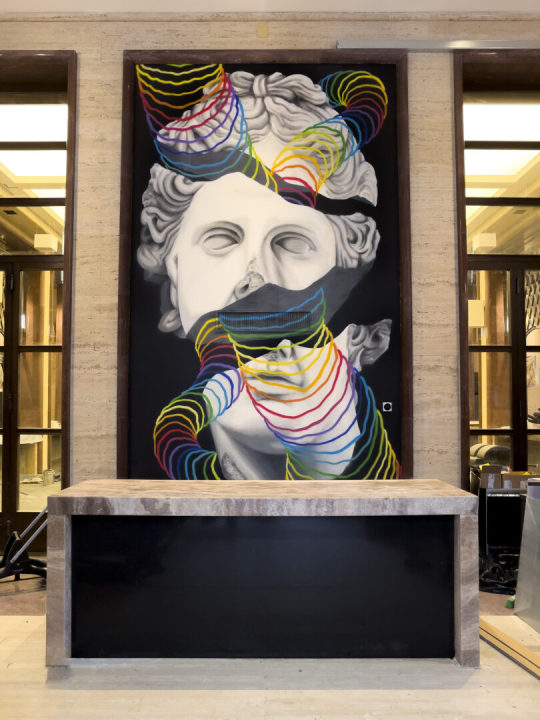
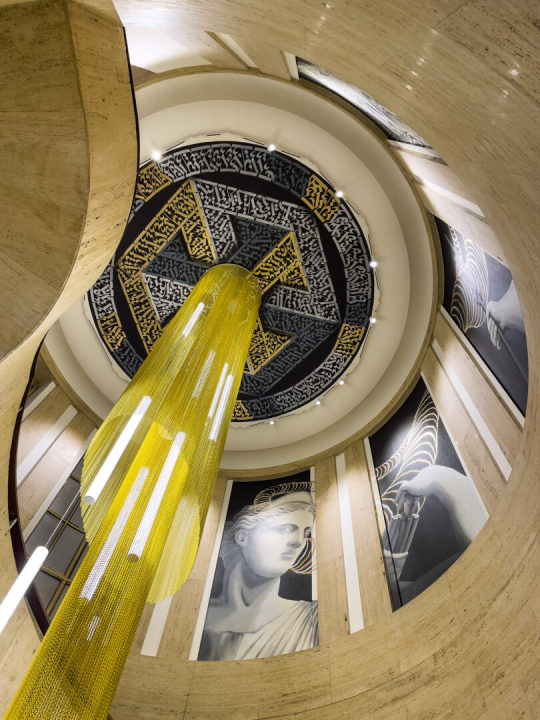
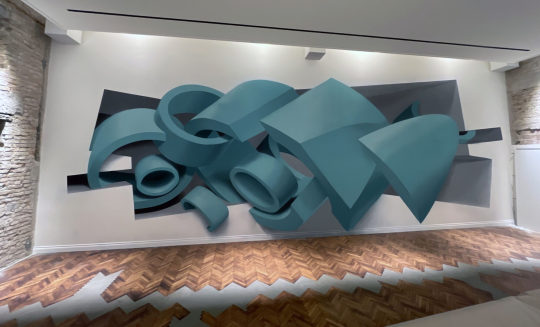

#redevelopment art project#urban colors#trieste#italy#culture#mediterranean#luca mayr#curator#artistic director#ron miller#art director#bank of naples#national street art#international street art
2 notes
·
View notes
Text

#mine#my photography#my photo#firstpersonnarrator#simon x billy#simon is simon#bay of naples#baie di Napoli#Mediterranean sea#tyrrhenian sea#tyrrhenian#medi/tyrrhenian sea#robert sheehan#simon lewis#location naples#location water#image bank sunset#image bank water#image bank mediterranean#location mediterranean#location Medi/tyrrhenian#location sorrento#location boat#image bank sunset on water#location sea
9 notes
·
View notes
Photo

Edgar Degas
Edgar Degas (1834-1917) was a French impressionist painter who used many different media to capture dancers, bathers, horse races, and scenes from Parisian café society. A keen photographer, Degas' paintings frequently show real-life captured in a moment in time, often with an unusual viewpoint, composition or framing – all of which techniques would prove influential on later artists.
Early Career
Hilaire-Germain-Edgar De Gas (better known simply as Edgar Degas) was born on 19 July 1834 in Paris. His parents were wealthy bourgeois who specialized in banking. Edgar's father, Auguste, was half Italian and half French while his mother, Célestine Musson, was an American Creole of French descent from Louisiana. Young Edgar studied at Paris' Lycée Louis-le-Grand, earning his baccalaureate in literature. In a family already rich enough but with aspirations to climb even higher socially, Edgar was encouraged to become the accomplished and fashionable young male of the period and to formally study art and music under various tutors. He also began to study law, but it soon became clear that art was his true path.
In 1855, Degas enrolled in the École des Beaux-Arts in Paris. He studied and copied the Old Masters in the Louvre, and in July 1856, he went to see firsthand the Renaissance art of Italy on a tour which took in Florence, Rome, Naples, and Venice. He sketched the art of antiquity, Renaissance works, local colour, and he produced his first great painting, The Bellelli Family, while staying with his aunt Laura Bellelli in Florence in 1858.
Back in Paris, Edgar was tutored by Louis Lamothe (1822-1869) and then Nicolas Soutzo (1834-1907). This traditional artistic education led the young Degas to try and become a historical painter, that is an artist who depicts grand religious or historical scenes like the great Renaissance artists had produced. Examples of his work in this genre, which share a frieze-like presentation of the subject, include Young Spartans Exercising and Semiramis Building Babylon, both painted around 1861. Not untypically, Degas continued to work on the Young Spartans in subsequent years.
Portraits were another avenue he explored, and here the artist had more success in achieving his aims. Interested in giving his work a psychological element and depth, Degas often painted double portraits where the attitudes and emotions are shown markedly different between the two people in the painting. A recurring feature of Degas' portraits is the use of a painting within the painting. Like Renaissance artists who used objects as symbols that might convey more depth of meaning to a knowing viewer, Degas often included a notable painting that comments on the personality of the person being portrayed. However, it was another historical epic, Medieval War Scene that first got him noticed by the jury of the Paris Salon in 1865.
Eventually dissatisfied with the limitations of being too tied to the past or perhaps sensitive to the changes in contemporary art, Degas would turn instead to capturing everyday life as it happened in the circles he was most familiar with: bourgeoise Paris. His first work which shows this transition, and yet in which he still maintains a link to the historical painting style, is Mademoiselle Fiocre in the Ballet 'La Source'. The work was exhibited in the Paris Salon of 1868. The artist was about to fully move into modernity for his subjects, but Degas' long immersion in classical art and the more recent Neoclassicist artists like Jean-Auguste-Dominique Ingres (1780-1867) would have a lasting effect on the importance he gave to drawing, form, and composition, as well as the prominence he gave to the female nude. As Ingres had told Degas: "Draw lines, young man, many lines" (Howard, 42). This focus meant that Degas was probably the superior draughtsman of all the impressionist painters of his generation, a point noted by many critics.
Continue reading...
27 notes
·
View notes
Text

Saint Cajetan 1480-1547 Feast Day: August 7 Patronage: job seekers, the unemployed, workers, bankers, gamblers, Argentina, Italy
Saint Cajetan was born into a noble, Venetian (Italy), family. He studied law before he became a priest at 35. These were troubled times in the church with unscrupulous and uneducated priests and the start of the Protestant revolt. Instead of leaving the Church, he sought to reform it by forming a new order called the Congregation of Clerks Regular (Theatines). They established hospitals, lived in the spirit of monasticism and ministered to the poor and sick. He established a bank as an alternative to usury. (The Bank of Naples) The order made converts by their zeal and love for God and neighbor.
Prints, plaques & holy cards available for purchase here: (website)
53 notes
·
View notes
Text
Part 13 of Caldera; 5 of 5 chapters posted, now complete. Armand and Daniel leave the fledglings in Naples with a colleague from the London coven; meanwhile, they spend a week in Venice, both haunted by Armand's past and determined to ease the weight of it.
Bartering With Desire (2024-09-11)
The Only Word You've Got (2024-09-12)
Ready to Break the Bank (2024-09-13)
This Should Not Be Easy (2024-09-14)
Your Wishes Are Simple (NEW, 2024-09-15)
TEASER:
An hour and a half later, they’re back on the jet. For all of Daniel’s fantasies about what he wants to do to Armand in that dress, he’s drowsy with the blood he’d taken from a few oblivious souls on the Rialto. Armand sends documentation to the real estate agent and wires the funds for their new property, telling Daniel about the bridge’s mythology. The architect promised the first human soul to cross the bridge on completion to the devil, some say. He had a rooster cross first, but because it didn’t have a human soul, his wife and child ended up being the exacted toll.
“Medieval telenovelas must’ve been next level,” Daniel remarks, reveling in Armand’s laughter as his head falls back against Daniel’s shoulder.
“To say nothing of what Raglan insists I am to you,” Armand reminds him, setting the iPad aside, the transaction complete. “And you to me.”
#devil's minion#armand x daniel#armandaniel#devils minion#armand#daniel molloy#itv#iwtv s2#interview with the vampire#iwtv fanfiction#iwtv fanfic#iwtv fic
21 notes
·
View notes
Text
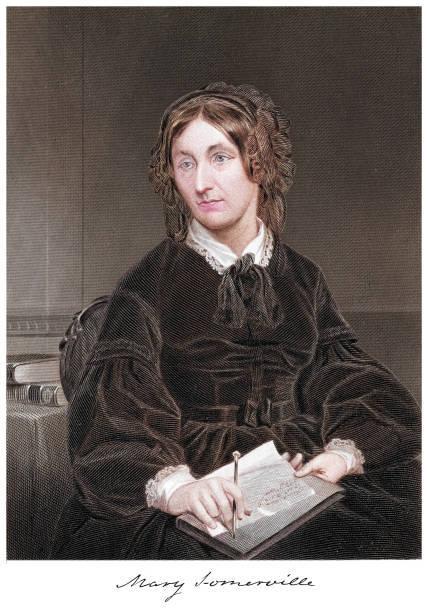
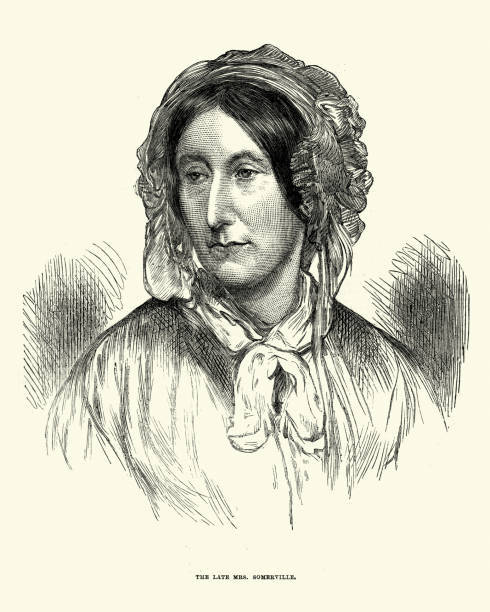

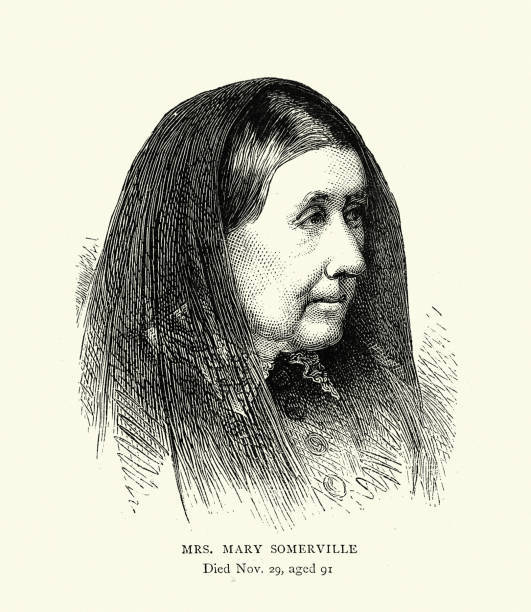
The Scottish Polymath Mary Somerville died on November 28th 1872 in Naples.
Today Somerville’s name lives on in an Oxford college, but her wider legacy is largely forgotten. She is the face of the Royal Bank of Scotland’s £10 banknote – the first non-royal woman to be honoured in this way.
Born in Mary Fairfax, Jedburgh on 26th December, 1790, Somerville grew up in the Fife seaside town of Burntisland. She was fascinated by the natural world from the start, collecting shells and fossils, and observing birds and sea creatures.
When her father returned from the sea, he discovered 8- or 9-year-old Mary could neither read nor do simple sums. He sent her to an elite boarding school, across the Firth of Forth, Miss Primrose's School in Musselburgh.
Miss Primrose was not a good experience for Mary and she was sent home in just a year. She began to educate herself, taking music and painting lessons, instructions in handwriting and arithmetic. She learned to read French, Latin, and Greek largely on her own. At age 15, Mary noticed some algebraic formulas used as decoration in a fashion magazine, and on her own she began to study algebra to make sense of them. She surreptitiously obtained a copy of Euclid's "Elements of Geometry" over her parents' opposition.
Four years after marrying, Mary Somerville and her family moved to London. Their social circle included the leading scientific and literary lights of the day, including Ada Bryon and her mother Maria Edgeworth, George Airy, John and William Herschel, George Peacock, and Charles Babbage. Mary and William had three daughters and a son who died in infancy. They also traveled extensively in Europe.
In 1826, Somerville began publishing papers on scientific subjects based on her own research. After 1831, she began writing about the ideas and work of other scientists as well. One book, "The Connection of the Physical Sciences," contained discussion of a hypothetical planet that might be affecting the orbit of Uranus. That prompted John Couch Adams to search for the planet Neptune, for which is he is credited as a co-discoverer.
Mary Somerville's translation and expansion of Pierre Laplace's "Celestial Mechanics" in 1831 won her acclaim and success: that same year, British prime minister Robert Peel awarded her a civil pension of 200 pounds annually. In 1833, Somerville and Caroline Herschel were named honorary members of the Royal Astronomical Society, the first time women had earned that recognition. Prime Minister Melbourne increased her salary to 300 pounds in 1837. William Somerville's health deteriorated and in 1838 the couple moved to Naples, Italy. She stayed there most of the remainder of her life, working and publishing.
In 1848, Mary Somerville published "Physical Geography," a book used for 50 years in schools and universities; although at the same time, it attracted a sermon against it in York Cathedral.
William Somerville died in 1860. In 1869, Mary Somerville published yet another major work, was awarded a gold medal from the Royal Geographical Society, and was elected to the American Philosophical Society.
By 1871, Mary Somerville had outlived her husbands, a daughter, and all of her sons: she wrote, "Few of my early friends now remain—I am nearly left alone." Mary Somerville died in Naples on November 29, 1872, just before turning 92. She had been working on another mathematical article at the time and regularly read about higher algebra and solved problems each day.
Her daughter published "Personal Recollections of Mary Somerville" the next year, parts of a work which Mary Somerville had completed most of before her death.
15 notes
·
View notes
Text
hiii i have news 😌 remember the waste land by t.s. eliot, which is an influential poem that incorporates the legend of the fisher king, aka our beloved anfortas, man with three staves?
turns out, other than anfortas, there are several characters from the game who are found in the poem.
the most recent one is sybilla, the seelie-like bee who weaved remuria a new symphony. she is based on the sibyl of cumae, who is mentioned in the epigraph of the poem.
I saw with my own eyes the Sibyl at Cumae hanging in a cage, and when the boys said to her: “Sibyl, what do you want?” she answered: “I want to die.”
the sibyl of cumae was granted immortality but forgor to ask for eternal youth. now she is doomed to live forever and waste away into nothing. when asked what she wants, she asks for death. this is a harrowing parallel to the suffering of the fisher king.
in the veluriyam mirage event, there's a quest where we meet three brothers together with kaeya. if you recall, two of these brothers argue in front of klee, who becomes upset. their names are ferdinand and jeroney. believe it or not, these names are referenced in the poem.
(the third brother, the sickly younger one, is named haddo, who i wasn't able to find in the poem... haddo may be a nod to the dark magician oliver haddo, a caricature of the occultist aleister crowley, who also used it as his pen name.)
ferdinand calls himself the brawns of the trio, while jeroney is the brains and haddo the designer.
in the waste land, the fisher king (anfortas) quotes the character ferdinand from shakespeare's the tempest, the prince of naples who got shipwrecked in a storm... similarly, the veluriyam brothers were caught up in a sandstorm and ended up in idyia's bottleland, so i do think our ferdinand refers to shakespeare's ferdinand specifically.
The Waste Land, Lines 190-192 (Fisher King): On a winter evening round behind the gashouse Musing upon the king my brother's wreck And on the king my father's death before him.
The Tempest Ferdinand: Where should this music be? i' the air or the earth? It sounds no more: and sure, it waits upon Some god o' the island. Sitting on a bank, Weeping again the king my father's wreck, This music crept by me upon the waters,
we are meant to connect the two together; anfortas and ferdinand. ...also, isn't it interesting that our ferdinand is the "brawn"? anfortas was a knight marshal, leader of a warriorband, so he must have been pretty powerful, too. (if he was the alberich mentioned in the book perinheri, he might have even been one of the mightiest figures in khaenri'ah).
next is jeroney, which is an alternate spelling of the name hieronymous. in the poem, there is a line referring to the character hieronymo, from thomas kyd's the spanish tragedy, alternatively named hieronimo is mad again.
The Waste Land, Line 431 Why then Ile fit you. Hieronymo's mad againe.
Early in Thomas Kyd's The Spanish Tragedy, Hieronymo's son Horatio is murdered by a rival. The murder unhinges Hieronymo, driving him mad even as he plots revenge against his son's killers.
hieronimo, (the knight marshal of spain), falls into madness after the murder of his son and plots revenge; coincidence or not, an obvious parallel to chlothar. our jeroney is the "brains", and while chlothar did go mad in the end, dainsleif acknowledged he went on to "do a great many things".
this is just a crack thought since we still don't know how anfortas is related to kaeya, but if those three brothers are supposed to reflect the alberich clan, it casts their interactions in a different light and could foreshadow kaeya's backstory. they showed us two brothers, who each chose a different path, arguing carelessly in front of a child... while their younger brother lies sick and forgotten...
... 👀
#.txt#lore bytes#kaeya alberich#anfortas alberich#anfortas#hmmmm#...once again it would make so much sense if anfortas was [gunshot]
21 notes
·
View notes
Text
This is the Golden Triangle Special Economic Zone, a vast development project founded by a Chinese businessman named Zhao Wei. Outwardly it resembles a midsize Chinese city; it even has an airport, with a soaring terminal that Zhao hopes will eventually welcome international flights. In interviews and on Chinese social media, he’s said one of his top priorities is to help the Lao people, who are among the poorest in Southeast Asia, “and to provide a bigger contribution to the country’s economic and social development.” Behind the glassy facades, however, more is going on. The GTSEZ operates as a self-governed enclave, and for the better part of a decade investigators have warned that it’s a hub for criminal activity of every description—a legal no-man’s land. At first, according to the US Department of the Treasury and other agencies that have examined the zone, one of its main businesses was drug trafficking, particularly of methamphetamines. They’re often mixed with caffeine to create cheap pills called yaba or else refined into pricier crystal meth and exported to wealthy countries. More recently, the GTSEZ has diversified into hosting “scam centers,” where teams of operators, many of them victims of human trafficking, persuade online marks to move their savings into fraudulent crypto-trading schemes. The United Nations Office on Drugs and Crime and other agencies have identified the GTSEZ as a nexus of money laundering as well, connecting criminal groups from Taiwan to Myanmar that use crypto, underground casinos and shadow banking to move ill-gotten gains. “It’s a multifunctional criminal enterprise,” says Richard Horsey, a senior adviser to the International Crisis Group who has studied the zone. “The GTSEZ business model is to provide the infrastructure. They create that ecosystem so that criminal businesses can come in, lease the premises they need, hire the armed security they need and get whatever they want.” [...] For now, Zhao is likely to continue running an unprecedented entrepreneurial experiment. Organized-crime groups have long sought to influence and profit from how cities are run. In a few exceptional cases, such as Naples in the heyday of the Camorra and the alliance in New York between Tammany Hall and the Mafia, they’ve managed to insert themselves into government, at least for a time. But the allegations against Zhao describe a much more ambitious endeavor: to create a vertically integrated paradise for criminal activity, from scratch. And according to investigators, it’s paying off.
Managed to escape the overregulation of Prospera that makes you sign a several thoussand page contract when you enter.
6 notes
·
View notes
Text


By Jane von Mehren
11 January 2023
The highly civilized Etruscans had a huge impact on the city’s eventual geography, architecture, government, trade, and agriculture.
They created excellent schools to which rich Romans sent their sons, much as they would later send them to Greek institutes.
By the sixth century B.C., some of Rome’s most famous institutions, from the Forum to the Senate, were in existence but even the most reputable historians — including Fabius, Livy, and Plutarch — started their accounts of the empire in legend.
Legendary beginnings

The story of Rome’s founding begins in Alba Longa, the first “city” of Latium, a region in central western Italy, occupied by Latins.
The area had been inhabited since the Bronze Age by farming communities and was known to the ancient Greeks, which is perhaps why Aeneas, a Trojan prince, is said to have established it around 1150 B.C.
According to legend, in Alba Longa, two of Aeneas’s descendants, the brothers Amulius and Numitor, fought over who would rule.
Amulius triumphed, killing Numitor’s sons and exiling his daughter, Rhea Silvia, to become a Vestal Virgin.
Through divine intervention, she gave birth to the twins Romulus and Remus.
Threatened by these potential claimants to his throne, Amulius beheaded Rhea Silvia and abandoned the babies in the river Tiber.
Miraculously, a she-wolf rescued and cared for the boys until a shepherd, Faustulus, adopted them, raising them on the Palatine Hill, located in modern-day Rome.
The legend goes on to say that the brothers established the city of Rome on the banks of the Tiber River, where it was narrow enough for crossing and the hills provided a good defensive position.
The land between the hills, however, was quite marshy and not all that fertile.
The twins soon quarreled about the city’s exact boundaries and Romulus killed Remus.
Romulus, along with the outlaws and criminals he recruited, invited neighboring tribe the Sabines, who had resisted intermarrying with the Romans, to a fête.
During the merriment, Romulus raised his cloak signaling his men to seize and abduct the young Sabine women.
As the origin story goes, being Roman wives suited the women and they stopped the Sabine men from battling the Romans when they came to recapture them.
In the end the Sabines remained in Rome as part of the new city.
Influences in the area

Archaeological evidence tells us that Rome’s actual origins were less dramatic.
The first Romans were Latin farmers and shepherds living in small village huts on the Esquiline and Palatine hills.
The Sabines, a tribe living to the north, divided soon after the city’s founding, and some of them came south and united with Rome’s people.
Rome remained relatively primitive until the 600s B.C., when the Etruscans, who controlled a series of city-states to the north, began taking control of the city.
Kingdom of Rome
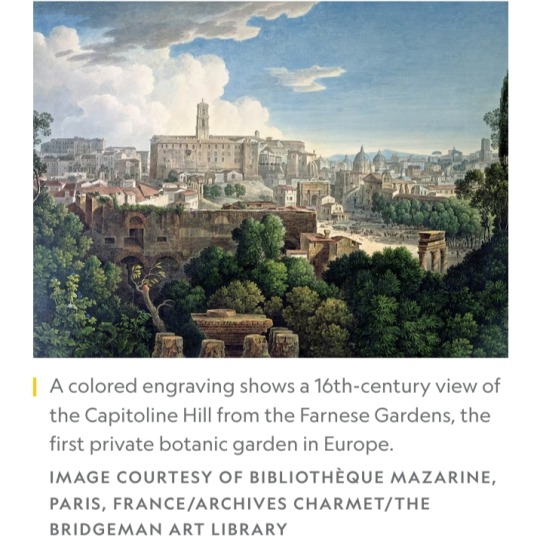
While modern scholars discount some of the accounts of ancient Roman historians, they agree that during the first phase of its history — from approximately 753 to 509 B.C. — Rome was ruled by kings.
According to these writers, Romulus was the first, succeeded by Numa Pompilius, a Sabine, and in 616 B.C., by an Etruscan named L. Tarquinius Priscus.
Kings had almost absolute power, serving as administrative, judicial, military, and religious leaders. A senate acted as an advisory council.
The king chose its members, who became known as patricians, from the city’s leading families.
Unlike later monarchs, Roman kingship was not inherited.
After a king died, there was a period known as an interregnum, when the Senate chose a new ruler, who was then elected by the people of Rome.
The king-elect needed to obtain approval of the gods and the imperium, the power to command, before assuming his throne.
Etruscan influences
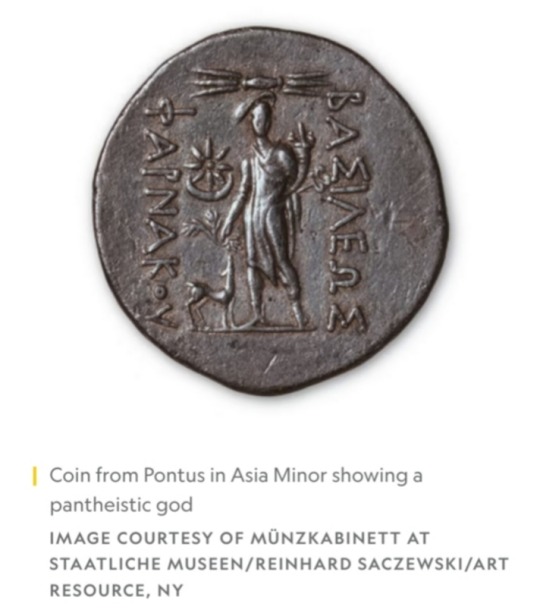
The Etruscans ruled a loose confederation of city- states that stretched from Bologna to the Bay of Naples.
It remains unclear where they originated, but they used a version of the Greek alphabet and some ancient sources describe them as coming from Asia Minor.
Around 650 B.C., they were already dominant in the region and took control of Rome, wanting its strategic position on the Tiber.
Under Etruscan kings, Rome grew from a series of villages into a proper city.
The Etruscans drained the marshes around the city, constructed underground sewers, laid out roads and bridges.
They established the cattle market, Forum Boarium, as well as Forum Romanum, the central market and meeting place that evolved into the heart of the empire.
Toward the end of this period of Etruscan influence, the first temple of Jupiter was built on the Capitoline Hill.
This temple, although rebuilt many times, became the symbol of Rome’s power.
Founding the Republic

The era of Roman kings ended in 509 B.C., when the Romans supposedly expelled the last Etruscan king, L. Tarquinius Superbus, in another mythicized event.
As recounted by historians, including Livy, the son of Tarquinius Superbus, Sextus, raped at knifepoint the noblewoman Lucretia, wife of the king’s great nephew.
Lucretia, feeling that her honor and virtue had been lost, committed suicide.
Her uncle Brutus swears to avenge her and commits to revolution and the expulsion of the monarchy.
To the Roman people, her story represents the tyrannical powers of the monarch on the state, and so the saga of Lucretia is cited as the event that spurred the Roman Republic into being.
In place of the monarchy, Romans established a republic, which lasted until 30 B.C.
Over the course of nearly five centuries, Rome became a dominant Western power, seizing territory throughout the Mediterranean, creating an enormous and efficient army, and learning how to administer its vast provinces.
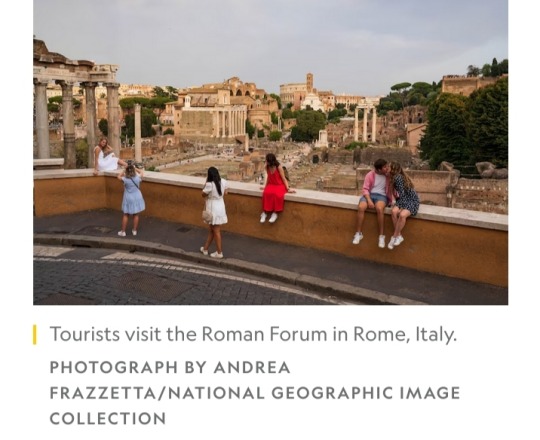
NOTE:
The traditional date for the founding of Rome is 21 April 753 BC.
#Rome#Ancient Rome#Romulus#Remus#Alba Longa#Latium#Italy#Aeneas#Amulius#Numitor#Rhea Silvia#Vestal Virgin#Faustulus#Palatine Hill#Tiber River#Sabines#Etruscans#Numa Pompilius#L. Tarquinius Priscus#interregnum#imperium#Forum Boarium#Forum Romanum#Capitoline Hill#Temple of Jupiter#L. Tarquinius Superbus
8 notes
·
View notes
Text

THE DESCRIPTION OF SAINT JANUARIUS The Patron of Blood Banks and Against Volcanic Eruptions Feast Day: September 19
Saint Januarius hailed from a rich patrician family. He became a priest and later the Bishop of Benevento. As he went about his duties he met Deacon Sossius who impressed him so much with his singing and befriended him.
When Emperor Diocletian started the Christian persecutions Deacon Sossius was arrested and put in prison. Bishop Januarius visited him there and unfortunately, he was also arrested.
Later, Bishop Januarius, Deacon Sossius and several other Christians were sentenced to be thrown to wild bears in the Flavian Amphitheater at Pozzuoli but the bears failed to devour them. The sentence was changed to beheading.
After beheading, Saint Januarius's blood was collected and taken to Naples where it is now preserved in two glass vials as a relic in the cathedral of the Roman Catholic Archdiocese of Naples.
Saint Januarius' body remains are preserved in the crypt beneath the cathedral of the Archdiocese of Naples. His blood is also preserved there in two glass vials.
Saint Januarius that was preserved usually miraculously melts three times per year: on September 19 (the day of his martyrdom), on December 16 (during the celebration of his patronage of Naples and the archdiocese of Naples), and on the Saturday before the first Sunday of May (when his skull was reunited with the rest of the body).
Source: catholicreadings.org
#random stuff#catholic#catholic saints#saint januarius#januarius#san gennaro#san jenaro#blood bank#volcanic eruptions
2 notes
·
View notes
Photo

The redevelopment art project Urban Colors has chosen as the location for its latest intervention Trieste, a city historically a meeting place for cultures from all over the Mediterranean and the scene of important events in the history of Italy.
The space chosen by Urban Colors is precisely a building that tells a page in the history of the 20th century, particularly that of the fascist regime. Luca Mayr, curator and artistic director of Urban Colors, and Ron Miller, art director of the project, chose to involve 16 artists to give a new face to the former Bank of Naples, now converted into a gymnasium.
The artists who collaborated on the project are some of the most recognized names in national and international street art such as Peeta, Ravo, Joys, Ozmo, Rancy, Oger, Amina, Sorte, Stuer, Corvino, Fosk, Stefano and Mattia Bonora, Samuele Frosio, Ron Miller, and Andrea639.




#redevelopment art project#urban colors#trieste#italy#mediterranean#luca mayr#curator#artistic director#ron miller art director#bank of naples#artist#national street art#international street art
1 note
·
View note
Text
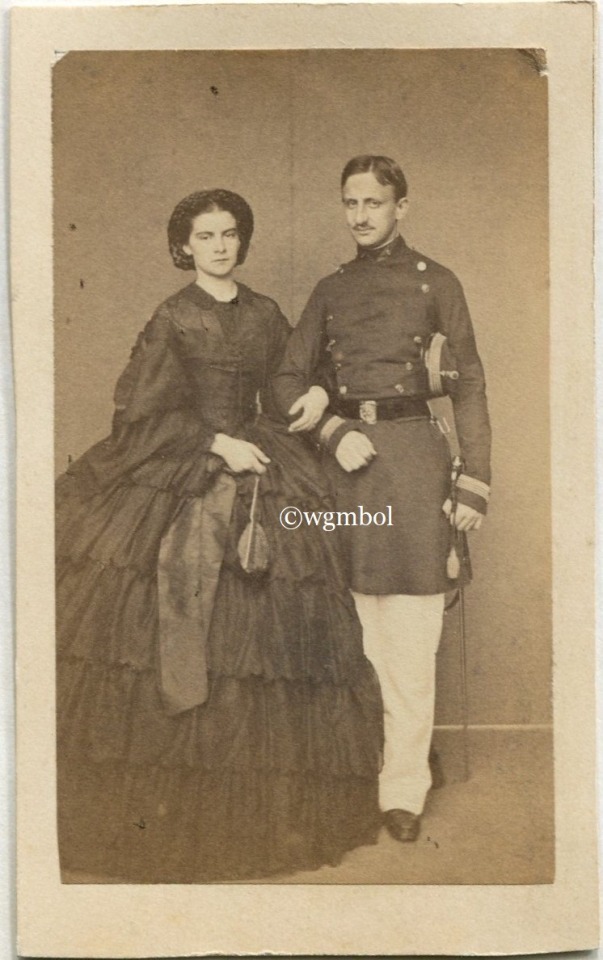
Francis II and Marie Sophie, last King and Queen of The Two Sicilies. A carte de visite photograph by Alphonse Bernoud, Naples 1959. From my own collection.
Queen Marie Sophie of The Two Sicilies in 1924.
I found this interview with Marie Sophie online, it's in Italian so I google translated it. Far from perfect!! But it gives some interesting info on our Queen one year before her death.
Posted by Giuseppe Grifeo on 19 February 2022, grifoneartigliopenna.com.
Interview with Her Majesty Queen Maria Sofia
Published in Corriere della Sera in November 1924.
by Giovanni Ansaldo.
Maria Sophia of Bavaria, Queen of Naples, widow of His Majesty King Francis II of Bourbon. Not only does she still live, but she reigns. Duchess of Castro for the vulgar of hotel maîtres and bellboys, empress of the soul for me.
I love the beauty and dignity of tragedy in her.
There will always be kings, they will triumph over theories and revolutions, because tragedy is necessary, and they alone are its characters.
Poor men need living beings, freed by birth from the miseries of sentimental promiscuity and from certain conventions towards equality, from certain leveling of pain, from certain ménagements of respectability.
A few days ago, Queen Maria Sophia was rummaging through some old crates, which had not been opened for years.
She drew out two poor water-colours, two views of Vesuvius, sweetly veiled by a languor of exile, which had trembled in the hand of the amateur. Her trusty Barcelona, who was next to her, found them beautiful.
"Do you think so?" replied the queen, squinting her eyes and looking at the two watercolors in perspective. "Do you think so? My king painted them."
And she laughed.
The old queen of eighty-three years still laughs, softly or with a sharp convulsion, and a wave of blood still rises youthfully from her heart to her temples, to the root of her white hair; she still laughs today as in his father's house in Possenhofen, in the palace of Naples, in the casemates of Gaeta, at the time of her eighteenth birthday.
The great disdainful are inclined to laughter: it is, in them, an attitude of defense against life. Unlike her sister Elisabeth of Austria, Maria Sophia sought happiness.
She says it: "We, Duke Max's five daughters, used to call us die Wittelsbacher Schwestern, the Wittelsbach sisters, when we were young. We wore all five, black braids, drawn round just above the ears and on the forehead, in the manner of the peasant women of Oberbayern.
"Then we all took flight: Elisabeth became Empress of Austria, Helena became Princess of Thurn und Taxis, Matilda married Louis, Count of Trani, Charlotte the Duke of Alençon: but of all five, I was the one most disposed by nature to enjoy life."
Her design was therefore a slow and laborious conquest, her indifference being a crown far more glorious than that Norman monarchy.
The anxieties of recent years, the vicissitudes of a barely well-to-do old age, have not deprived her of her laughter, which even today veils her purple face, the purple of her intimate and victorious kingship, which the adventures of the world and of men cannot offend. Maria Sophia lives in Munich. She was the guest of her nephew, the son of Duke Karl Theodore.
The old palace built by Duke Max on Ludwigstrasse houses the headquarters of Deutsche Bank in the left wing; in the right wing, the Queen of Naples.
The young Wittelsbach princes, the new generations, have built themselves other mansions, in Bad Kreut, in Berchtesgaden, in Tegernsee: they bring with them valid servants: they have left the old queen two servants who wore with extreme decorum the livery of the Wittelsbachs, white and blue, and whom they enter with dignity into the antechamber naked, with a few yellow satin armchairs, but without, God willing, all the bric a brac of the private apartments of the poor and banal kings with kingdoms.
Two old retired servants, two maids, the secretary—this is Maria Sophia's court. The secretary is a man from Catania, Mr. Barcelona, who has been in the service of the queen for more than twenty years. And, he says, with the naïve and honest devotion of an employee.
The Count de La Tour, Baron Carbonelli, the Count of San Martino, the last gentlemen who surrounded the old Maria Sophia before the war, all dead.
"I'm the only one who replaces them," says Mr. Barcelona with infinite discretion.
"Her Majesty's estate was all invested in Austrian funds. You understand the consequences. The queen also owned a beautiful villa on the boulevard Maillot in Paris. It was there that, indeed, the war surprised us. Oh, all the adventures to send the German servants back to Germany.. The queen has Italian citizenship, she is Italian. The French Public Security was then very kind, for the passport. I said, "But you understand, gentlemen, you don't want an old queen to come to the commissariat in person!" They understood, and sent a delegate. Then came the moratorium of interests: we were already here in Munich. But the Wittelsbachs still helped the queen: the prince regent was on the throne. Leopold, the same one who led her to the altar, by proxy of Franceschiello. Many Italians, many, visited the queen in prisoner of war camps. The queen speaks fluent Italian, just a few French terms, but rarely: and they were surprised". And she explained it like this: "I am a lady, who knows Naples well". Or: "I'm a lady, who learned to speak Italian when I was young." Then she said: "Poor people! They are astonished to find me so much like them, for I ask if they have had their full ration of broth!" She gave all his Italian books to the prisoner of war camps.
At the time of the "republic of councils", the queen was accommodated at the Kaiserhof on the Stachus. The Spartacists defended themselves from the barricades erected right in front of the hotel, on Karlsplatz. The owner said: "But Your Majesty, I decline all responsibility." The queen laughed, and said: "My dear, absolutely not. I will not go down to the cellar. I want to see if at least the revolutionaries of today shoot better than those of my time." And she always watched from her apartment all the phases of the struggle.
General Epp, who commanded the government troops, liked her very much because she rode well. Then we left for Paris, boulevard Maillot, where we spent two years: from October '20 to October '22 (it is presumed that they are still the words and the story of the trusty Mr. Barcelona) Now, the beautiful house on Boulevard Maillot is sold. The last three Italian servants took their leave. This winter the queen would also have liked to spend the winter in Paris: we wrote to some good hotels, not the first ones: but what prices! One hundred francs a day. The queen, you will understand, has to fix at least three or four chambers. For this year you will have to give it up. As with newspapers.
In the past, we received about twenty newspapers, quite a few, even Italian newspapers: but how do you do it now? The queen still gets a few Italian newspapers, but so you know... So, when there's something interesting...
The secretary does not want to say his own words: "second-hand".
He's right. Kings cannot accept anything second-hand: neither the throne nor the newspaper.
I reflect: how beautiful and noble it would be if the greatest Italian newspapers sent a copy as a tribute to an old lady of eighty-two, who was... But yes. Not even to think about it. We would be accused of latent Bourbonism.
"That's the way it is with the mail. What a lot of mail you used to do, madam! The queen did a lot of charity, she paid small pensions. She wants to pay one even now, to old Giovanni Tagliaferri, of Caserta, who was with her at Gaeta: he is the one who still remembers more things than when the queen was young, and drove six horses, with a firm hand, through the avenues of Capodimonte. But also the mail, little by little... It was very sad when she had to suspend the subsidy to the hospice of small Italian glassmakers, at the Plaine Saint-Denis, near Paris."
"It was Sister Maria d'Ajutolo who is now dead too, who had taken her to see what the misery of those people was. Sister Marie d'Ajutolo was an energetic woman, who when she spoke of the horrors of the Plaine Saint-Denis, or of some other affair of the kind, would fix her eyes in the Queen's face, and say, 'Shame on you, Your Majesty.'"
And the queen replied firmly with conviction: "Yes, there is something to be ashamed of, Sister Maria."
When I told her that the subsidy could no longer be spent, the queen was sitting at her work-table on the other side, and repeated two or three times, looking into space, "Shame on you, Your Majesty." Then she added, "No one ever spoke to me so well as Sister Maria."
In fact, she had a high esteem for them.
Now, the queen writes to fewer people. In Italy she still has some friends from distant times: such as the Duchess Della Regina, who is also Countess of Macchia, of Naples.
For the 4th of October, which is the Queen's birthday, and for Marie's nameday, the Duchess always sends to ask what the Queen would like best. And you know, what do I always receive? A box of macaroni, with a little cheese and preserve, so much so that you can make some dry pasta.
And the Duchess always sends everything on time. The duchess is old too, she met the queen in Caserta, she never saw her again, from those days. But she still does the packing, I know the handwriting. You have to write on the address: "Liebesgaben".
Then at the border they don't open the parcel, the German customs don't open the parcels of gifts. "Liebesgaben", "gift of love". You are a great soul, old lady. You write with trembling hands the foreign word, the mysterious word, the word that must open distant frontiers to homage to the queen of your youth. "Liebesgaben", "gift of love...".
"The Queen, when she receives the Duchess's parcels, with Liebesgaben written on them, is very happy. She sends for an old Neapolitan, here from Munich (in Paris, there were the Tagliaferri, uncle and nephew) and has delicious dry pasta made, which she lets as many people as possible taste. The last time, she invited the Papal Nuncio, Monsignor Pacelli, to lunch: but such a confidential lunch, it is understandable: the Nuncio is very intelligent and knows the queen's condition. After all, few visits. the Kronprinz Rupprecht, who comes to be the Queen's nephew-in-law, when he comes to Munich from Berchtesgaden is always engaged in official ceremonies of military leagues, or whatever: he pops here to the palace, but only a few minutes."
"The Queen also had, some time ago, the visit of an Italian princess, who has now entered our House: Princess Bona. She comes to be her great-granddaughter by purchase, because Prince Conrad her husband is the son of a daughter of the Empress Elizabeth."
Mr. Barcelona orients himself in the Wittelsbachian-Habsburg kinship with the safety of a bat in a cave. And then, a few other friends. Every evening at five o'clock, the Queen's sister, the Duchess of Trani, comes. Matilda who lives at the Vierjahreszeiten hotel on Maximilianstrasse. To have tea. Then I do a little reading of the newspapers, because the Duchess of Trani, though less old than the Queen, cannot read easily, without glasses, like the Queen."
"The Duchess of Trani is eighty years old. The queen says that their speeches are as gloomy as that line by Schiller in the ballad of Rudolf of Habsburg: "Als dächt'er vergangener Zeiten" (as if thinking of times gone by) but she says it without regret. Then I always accompany the Duchess of Trani back to the hotel, which is quite far away, and because of the darkness some misfortune could happen to her."
"Rudolf of Habsburg, when past times seize him, and make him weep, sits at the palatine banquet, in the midst of his court, and can hide his tears "in the mantle of purple folds." Maria Sophia has only the purple of her face, which protects her from the ravages of the vulgar, from curiosity and compassion, better than the imperial mantle "des Mantels purpurnen Falten".
Standing next to her work table, straight as the trunk of a young pine tree, the queen receives. Beneath the fringe of her white hair, and the great and perfect arch of her eyebrows, the eyes look at the newcomer, and at the same time they look into the distance: She feels that she is on the edge of that proud life; guests, episode. The thin mouth is painful, yes, and for being good and benevolent, but it cannot smile with the easy and banal encouragement of charmeurs.
The queen who resists death so tenaciously has something in her face of those children, for whom one fears that they will soon die: this fear, this reluctance before life is the same on her face today, as in the portrait of her seventeen-year-old Piloty painted, before she was married.
Because of this anxious and disdainful face of hers, Maria Sophia is saved from obscene old age, she is the contemporary of all the generations that have passed: she is the ageless woman of the ancient Hellenic poem, who, struck by the misfortune of her house, yet not despairing of the justice of the gods, happy and proud of her own beauty that cannot be taken away from poor men, Praise the designs of fate.
The tone with which it asks the visitor for the name, the majors, the homeland, is frankly Homeric. The queen believes in the goodness of blood and the importance of at least clean ancestry. She also asks for years, and says her own, without any senile vainness. "I'm eighty-three years old. One more than Mr Giolitti. I'm very old."
The queen is silent. I furiously search my brain for the questions to ask her, the issues, the arguments. Nothing. That last sentence of his makes me feel like a portcullis, suddenly lowered on a window where I wanted to nibble with my curiosity. "I am very old": implied: "Let your words be counted".
I raise my head: the queen is motionless. I can't see or think of anything other than the two objects on the table: a white tricot work, and a newspaper.
I end up asking the Queen what newspapers she reads.
"I'll tell you. I myself read Les Journal des Débats and Le Figaro every day. My foreign policy is somewhat directed by Mr. Gauvain, whom I consider to be the first political columnist in Europe, the most informed, independent and systematic. I read Le Figaro for the mundane part. It is the only newspaper in the world that gives a good account of the marriages, the deaths, the vacations of my relatives and my relationships, and of good society in general: a much more important thing than you think. Then the Figaro is the only one I trust for literary reviews. I buy the books he says well about, the others I certainly neglect."
"And what about German newspapers?"
"So, the Müncheners, for what's going on in the city. But Munich is sad, you know. These people of Munich have lost their minds." The queen lowers her voice, and repeats several times: "lost my head."
"Mr. von Kahn is a man very devoted to the monarchy: but he has no head, no, no."
The queen still nods nods, with her nod, with indulgence, with pity. "I know him as godly, but headless men are."
When the Queen learns that I have also visited the Ruhr, she asks me if it is true that French troops are committing so many atrocities. I answer what I know.
"But I always thought so! It can't be that the French deliberately do what these newspapers say," says the Queen, leafing through an issue of Münchener. "I am glad that you give me moderate and unbiased information. This story of French atrocities in the Ruhr is like that of German atrocities in Belgium. All the same, all so the same, sir! What about "black shame"? There, too, it must have been exaggerated."
A pause, full of poor humanity. The queen narrows her eyes as if not to see how deceitful and filthy men are. "Mon cher monsieur, le monde c'est fou. There is no way to heal it. Each generation repeats the mistakes of previous generations, taking them for sensational novelties."
The queen is very well informed about Italian affairs. Of the reigning House, above all: it asks hermetic, sealed questions, of which only an initiate to court life could grasp the hidden meaning.
He is pleased that Prince Umberto is a young man: "It is a great fortune for a king to be handsome and handsome: if not, he ends up staying... to remain, as the French say, aigri [soured]. Queen Elisabeth of Belgium (Maria José's mother) is my niece: she is a daughter of Duke Charles Theodore. And also my favorite, because it was the liveliest, the most daring, the one that most resembled us as a child, the Wittelsbach sisters, when we were also children, in my father's house, in Possenhofen."
A great esteem for Empress Zita of Habsburg. "You see how fine it is: she was the only royal character who did not write her memoirs. The American publishers would have paid her for them too. But a queen writing her memoirs... The Empress understood that."
"The memoirs about me, you say? Oh, how many I began to read! But novels, all novels that I threw away in annoyance...". No Bavarian eagle. "I was a healthy, cheerful girl. But let's get back to Empress Zita. He has two misfortunes: the name, which is ugly, and that plane trip to Hungary: those adventures... But his son will return to the throne."
Arco, Deauville, Tegernsee, the house of the Orléans in Twickenhan, the villa of Neuilly sur Seine: against the backdrop of coffins of exiled kings, the wedding of young princes, the solitary rides of her, the re-enactor.
"Tell me. I saw a photograph in the Illustration in which some nuns greet the King of Italy and Mussolini with their arms outstretched in the Roman style. Is this accurate? Or is it a trick?".
"I think that's right, Your Majesty."
"Is it true that the Honorable Mussolini tries to have excellent relations with the Pope?"
"I think that's true."
"But it's natural, it's natural..."
I don't insist. I am afraid of the memories of her youth and her years of reign...
"You see, I'm poor. And I live here by permission of one of my nephews; for otherwise I would have to live in a suburb of Schwibing or Sendling. I need Monsieur Barcelona out of devotion, certainly not for the salary I can pay him. I don't even have the means to subscribe to some Italian magazine and to buy the latest news from Treves, as I had always liked to do. The Savoys were not chic with us Bourbons."
"That Don Giovanni Rossi, who was an employee of our Royal House, and who had custody of the borderò [payment slip] of four million ducats, my husband's very private property, went at once to present it to Garibaldi, as soon as he entered Naples, to make himself credited, does not surprise me; That Garibaldi immediately confiscated it, together with the borders of the other Bourbon princes, does not surprise me either; Revolutionaries have always done so with fallen kings."
"But that the Savoys, after they had annexed the kingdom of Naples, did not feel the need to show a little respect to the Bourbons, who had been very legitimate kings, like them, this is what still amazes me today, after so many years. Victor Emmanuel also knew that those four million ducats came from the dowry of Francis II's mother, they came from the inheritance of Maria Cristina of Savoy, they were the result of the sale of the allodial assets of the first branch of the Savoy, in Piedmont, and of Palazzo Salviati, in Rome."
"And he knew well that the villa of Caposele, in Mola, had nothing to do with the goods of the crown, with the royal palaces of Portici and Capodimonte for example; but it had been the very personal property of King Ferdinand and left by him to King Francis, my husband, in his will, in his will, as a free property."
"But he didn't make any distinction either, like Garibaldi. He was a king who behaved towards us like a revolutionary, and that is not good. The French republic was much more ladylike with the Orleans than the kingdom of Italy was with us... And now you tell me that the children of the King of Italy are healthy and beautiful and that they enjoy life. I am happy about them and I wish them well. But the way they treated us is a bad omen. God forbid that one day they too will not have to defend their personal patrimony from exile..."
But the queen thinks of it, gently. She speaks of her Italian servants, the last three she had: she knows precisely their names, what they do, where they are. "They were three southerners who remained devoted to me beyond any personal convenience, until it was I who sent them away, because... They were young, they had come to my service on the recommendation of some old friend, they had to start a family, it was no longer possible for them to waste their time around an old lady."
"You can make a lot of railways, a lot of roads, a lot of schools in those countries: men don't change, you know. They will always remain attached out of personal devotion to the master who will be able to convince them: the best soldiers in the whole peninsula, together with the Alpine mountaineers. I had Gaetano. Gaetano Restivo, a Sicilian from Ficarazzo, in the province of Palermo: now he is over there in his village, he sent me a box of oranges some time ago. The last tribute I get..."
"Then Luigi Tagliaferri, from Caserta, nephew of another Tagliaferri, who was with me in Gaeta. Then Gaetano Marsala, from Pescocostanzo in Abruzzo, who is now a shoemaker in Paris. This Marsala is a simple soul, and he always spoke to me about the Angevin crown that is preserved in the collegiate church of his town. He seemed to have tales when he told of the Angevin crown, which, as I understood, must have been in some sacristy of the Church, and Marsala as a child, must have admired it for a long time, when he was preparing to serve mass. For him, there was truly a lost kingdom around the crown of Pescocostanzo, full of all splendors... much more so than for me. A Sicilian, one from Terra di Lavoro, an Abruzzese: all the provinces of the Kingdom were right around me."
The voice lowers, wearily, falls. At the point of dying, I feel that the queen bids me farewell, leaves me again on the sidelines of her rich life, in which I deluded myself, in some accent, that I could look with clear eyes. She didn't let me glimpse anything of this life of her: only glimpses, perspectives on her thought: judgments, if you will: but of the deep life, nothing. In her tragedy, there were never confidants, and monologues were abolished.
When I am at the threshold, the queen understands my foolish disillusionment, and has an ironic pity for it. High in the middle of the room, she beckons me. Perhaps, now, the real one appears to me for a moment, the barbarous Maria Sophia of Wittelsbach, made to be a horse driver, the companion of conquerors, the mother of kings? But the usual bewildered voice murmurs: "You are young, sir: you will still see old queens, so many things, so many things..."
As I attempted my first courtly bow, Maria Sophia still nodded, sadly, to the adventures of the world; that she will never see again. But perhaps she was watching. also my plebeian clumsiness in my deference to Majesty, and the obstacle in which I was to leave the room, without turning my back, as I have read in the books that are practiced with kings: and she lamented these wretched times, when bowing before queens is not even taught.
#royalty#mariesophieofnaples#queenmariesophieofnaples#reginamariasofiaborbone#Casarealdiborbone#empress elisabeth of austria#sisi#mariasofiaborbone#history#royal history#mariesophieofthetwosicilies#italy#sicily#naples#kingdomofnaples#kaiserinelisabeth#sissi
10 notes
·
View notes
Text

#robert sheehan#luke#luke cherrybomb#cherrybomb#fave movies#alf ii#image bank billy#billy#billy delaney#location club#image bank flirty flirty billy delaney#flirty flirty billy delaney#image bank sexy sexy billy delaney#sexy sexy billy delaney#location party#location capri#location naples#location anacapri#location boat#location yacht#image bank big hair#image bank bouffant#costume bouffant#image bank billy big hair#image bank curly hair#costume curly hair#image bank luke#simon x billy#simon is simon
8 notes
·
View notes
Text
Watched Da Vinci's Demons s02 ep03 and I have mixed feelings. The Riario parody was so silly. I snorted. It makes you appreciate the man himself even more because no one else could pull off his mannerisms in seriousness.
We have a new villain and he's no fun at all, being a rapist. It's really much harder to digest when it's depicted on screen. Ugh. Did they really have to go there?
Lucrezia and Lupo are working together - I would have never guessed that. I must admit I'm starting to like them both. Thumbs up for that.
I was a bit bored with Leonardo's shenanigans. It's starting to get old fast when the story wants to wow me with his inventiveness. Again and again.
Nobody told Lorenzo who the spy was, now his wife told him and he choked her. He also has a hare-brained plan to travel to Naples in secrecy (with Leo's father who is not enthused) and do what exactly? To explain: Florence has been excommunicated as a whole for hanging a cardinal and no one wants to trade with them/use the Medici bank anymore. Oh well, my respect for Lorenzo has gone down the drain again. I guess he's good for speeches, but not great on making plans.
3 notes
·
View notes
Text

Happy Feast Day
Saint Januarius (St. Gennaro)
Died 305
Feast Day: September 19
Patronage: blood banks; Naples; volcanic eruptions
Saint Januarius was a bishop of Benevento, Italy. When visiting prisoners, during the Diocletian reign, he too was imprisoned. They were thrown to a wild bear who didn’t harm them, then they were beheaded. For 600 years vials of St. Januarius’ blood have liquified up to 18 times each year. This miraculous event continues today and has been intensely studied by scientists.
Prints, plaques & holy cards available for purchase here: (website)
19 notes
·
View notes
Text
Scene One
A river. No one visible on the banks. A small motorboat, tied to a harbor, bobs on the waves. It's a sunny day, but there are dark clouds looming on the horizon.
Winters in Naples: cold, rainy, miserable. But winter has not come yet.
The camera locks onto a tall, imposing clock tower and pans upwards, slowly, until it reaches the skies above.
52 notes
·
View notes